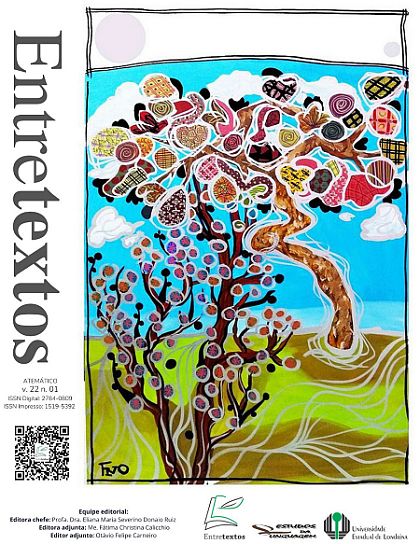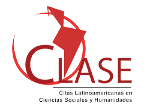Ethical dilemmas in language classrooms: questioning otherwise
DOI:
https://doi.org/10.5433/1519-5392.2022v22n1p164Keywords:
Language Education. Decoloniality. Levinasian ethics.Abstract
Language teacher educators realize that novice language teachers graduate with unanswered questions, whose possible responses might appear as they experience the profession daily, as other questions will also be elaborated and others never fully answered; in this sense, Arthur, the character to whom the authors talk, is a personification of every language teacher. By recognising that the classroom setting is not a matter of black-and-white solvable dilemmas, but a grayscale palette, the authors draw on decolonial perspectives (MIGNOLO, 2007, 2009, 2018; PESSOA; BORELLI; SILVESTRE, 2018; ROSA-DA-SILVA, 2021; WALSH, 2017, 2018, 2021) and on the Levinasian ethics (LARGE, 2015; LÉVINAS, 2010, 2020; TODD, 2003, 2015) to analyze three language teachers' responses to two classroom-based ethical dilemmas, which is a shortened version of a larger study (EGIDO, 2020b). As the analysis is carried out, questions are posed to Arthur and the reader. Although turning our classrooms into safe spaces where students can share the struggles they are going through is not a simple task, it is a necessary one.Downloads
References
BROSSI, Giuliana Castro; FURIO, Mariana; TONELLI, Juliana Reichert Assunção. Currículo e formação de professores de inglês em duas universidades: questões e desdobramentos. Reflexão e Ação, Santa Cruz do Sul, v. 28, n. 3, p. 96-112, 2020.
BROSSI, Giuliana Castro; TONELLI, Juliana Reichert Assunção. A construção do agir docente por professoras de língua inglesa para crianças: um olhar para o ensino como trabalho. ALFA: revista de linguística, São José do Rio Preto, v. 65, 2021, p. 1-31.
DUBOC, Ana Paula Martinez. Atitude curricular: letramentos críticos nas brechas da formação de professores de inglês. 2012. 246 f. Tese (Doutorado em Estudos Linguísticos e Literários em Inglês) - Universidade de São Paulo, São Paulo, 2012.
EGIDO, Alex Alves. Afinal, o que é agir eticamente em aulas de línguas? [S. l.: s. n.], 2020a. Projeto de pesquisa na Plataforma Brasil. Aprovado em 26 de março de 2020. CAAE: 29694820.1.0000.5231.
EGIDO, Alex Alves. O eu e o outro: uma breve histoÌria da eÌtica em pesquisa em linguiÌstica aplicada. 2019. 353 f. Dissertação (Mestrado em Estudos da Linguagem) - Universidade Estadual de Londrina, Londrina, 2019.
EGIDO, Alex Alves. Os rostos que ganham contornos: dilemas éticos por pesquisadoras de línguas. [Forthcoming].
EGIDO, Alex Alves. Práticas de formação de professores de línguas estrangeiras para crianças no Brasil: um estudo discursivo foucaultiano. In: FREITAS, Carla Conti; ROSA-SILVA, Valéria.; BROSSI, Giuliana Castro (org.). Políticas e formação de professores de línguas: o que é ser professor(a) hoje? Anápolis: Ed. UEG, 2020b. p. 69-94.
FREIRE, Paulo. Pedagogy of the oppressed. New York: Herder and Herder, 1970.
FURIO, Mariana Costa. O currículo e o estágio: práticas de formação crítica para o ensino de língua inglesa para crianças. Tese (Doutorado em Estudos da Linguagem) - Universidade Estadual de Londrina, Londrina. [forthcoming].
GROSFOGUEL, Ramón. Para descolonizar os estudos de economia política e os estudos póscoloniais: transmodernidade, pensamento de fronteira e colonialidade global. In: SANTOS, Boaventura Souza; MENESES, Maria Paula (org.). Epistemologias do sul. São Paulo: Cortez, 2010. p. 455-491.
GUILLEMIN, Marilys; GUILLAM, Lynn. Ethics, reflexivity, and "ethically important moments" in research. Qualitative Inquiry, California, n. 10, v. 2, p. 261-280, 2004.
INTERNATIONAL INSTITUTE FOR EDUCATIONAL PLANNING. Etico platform. Retrieved from: https://etico.iiep.unesco.org/en/about-us-0. Accessed on: 10 jun. 2021.
JORDÃO, Clarissa Menezes. Tradition and difference: can mainstream academic discourse in Applied Linguistics ever change? International Journal of Applied Linguistics, Amsterdam, v. 25, n. 3, p. 422-425, 2015.
KRENAK, Ailton. A vida não é útil. São Paulo: Companhia das Letras, 2020.
LARGE, William. Levinas' totality and infinity. New York: Blommsburry Academic, 2015.
LÉVINAS, Emmanuel. Do sujeito ético ao sujeito político. Aparecida: Santuário, 2010.
LÉVINAS, Emmanuel. Totalidade e infinito. São Paulo: Edições 70, 2020.
LOPES, Alice Casimiro; BORGES, Veronica. Formação docente, um projeto impossível. Cadernos de Pesquisa, Espírito Santo, v. 45, n. 157, p. 486-507, 2015.
MALDONADO-TORRES, Nelson. Sobre lacolonialidaddel ser: contribuciones al desarrollo de un concepto. In: CASTRO-GÓMEZ, Santiago; GROFÓGUEL, Ramón (org.). El giro decolonial: reflexiones para una diversidad epistémica más alládel capitalismo global. Bogotá: Siglodel Hombre Editores, 2007. p. 127-167.
MASTRELLA-DE-ANDRADE, Mariana Rosa; PESSOA, Rosane Rocha. A critical, decolonial glance at language teacher education in Brazil: on being prepared to teach. DELTA, São Paulo, v. 35, n. 3, p. 1-28, 2019.
MATUSOV, Eugene. Authorial teaching and learning. In: WHITE, E. Jayne; PETERS, Michael (org.). Bakhtinian pedagogy: opportunities and challenges for research, policy, and practice in education across the globe. New York: Peter Lang Publishers, 2011. p. 21-46.
MEGALE, Antoniera; LIBERALI, Fernanda. Caminhos da educação bilíngue no Brasil: perspectivas da linguística aplicada. Raído, Dourados, v. 10, n. 23, p. 9-24, 2016.
MIGNOLO, Walter D. Delinking: the rhetoric of modernity, the logic of coloniality and the grammar of de-coloniality. Cultural Studies, London, v. 21, n. 2, p. 449-514, 2007.
MIGNOLO, Walter D. Epistemic disobedience, independent thought and de-colonial freedom. Theory, Culture & Society, Los Angeles, v. 26, n. 7, p. 1-23, 2009.
MIGNOLO, Walter D.; WALSH, Catherine E. Introduction. In: MIGNOLO, Walter D.; WALSH, Catherine E. On decoloniality: concepts, analytics, praxis. Durham: Duke University Press, 2018. p. 1-12.
MIGNOLO, Walter D.; WALSH, Catherine E. On decoloniality: concepts, analytics, praxis. Durham: Duke University Press, 2018.
MINISTRO da educação defende que universidade seja para poucos. G1, São Paulo, 10 aug. 2021. Retrieved from: https://g1.globo.com/educacao/noticia/2021/08/10/ministro-da-educacao-defende-que-universidade-seja-para-poucos.ghtml. Accessed on: 1 sept. 2021.
MUNDURUKU, Daniel. Mundurukando 2: sobre vivências, piolhos e afetos: roda de conversa com educadores. Lorena: UK'A Editorial, 2017.
NILSSON, Peter. A snowball sampling approach for studying digital minority languages. 2014. 38 f. Thesis (Education Graduate Program) - Swarthmore College, Swarthmore, 2014.
PENNYCOOK, Alastair. Critical moments in a TESOL praxicum. In. NORTON, Bonny; TOOHEY, Kelleen (ed.). Critical pedagogies and language learning. Cambridge, UK: Cambridge University Press, 2004. p. 327-346.
PESSOA, Rosane Rocha; BORELLI, Julma Dalva Vilarinho Pereira; SILVESTRE, Viviane Pires Viana. "Speaking properly": language conceptions problematized in english lesson of an undergraduate teacher education course in Brazil. Ilha do Desterro, Florianópolis, v. 71, n. 3, p. 81-98, 2018.
QUIJANO, Anibal. Colonialidade do poder, eurocentrismo e América Latina. In: LANDER, Edgardo (org.). A colonialidade do saber: eurocentrismo e ciências sociais. Buenos Aires: Conselho Latino-americano de Ciências Sociais - CLACSO, 2005. p. 107-130.
QUIJANO, Anibal. Coloniality of power and eurocentrism in Latin America. International Sociology, London, v. 15, n. 2, p. 215-232, 2000.
REZENDE, Tânia Ferreira. A semiótica dos corpos na literatura goiana: o corpo negro de Leodegária de Jesus. Revista Plurais, Anápolis, v. 8, n. 1, p. 131-159, 2018.
RIBEIRO sobre crianças deficientes nas escolas: 'não queremos inclusivismo'. UOL, São Paulo, 24 aug. 2021. Retrieved from: https://educacao.uol.com.br/noticias/2021/08/24/milton-ribeiro-ministro-da-educacao-fala-criancas-deficiencia.htm. Accessed on: 1 Sept. 2021.
ROSA-DA-SILVA, Valéria. Movimentos decoloniais no estágio de língua inglesa: sentidos outros coconstruídos nas vivências em uma escola pública. 2021. 258 f. Tese (Doutorado em Letras e Linguística) - Universidade Federal de Goiás, Goiânia, 2021.
SHIROMA, Eneida Oto; MORAES, Maria Célia Marcondes; EVANGELISTA, Olinda. Política educacional. Rio de Janeiro: DP&A, 2000.
SILVA, Jhuliane Evelyn. Colaboração e formação continuada de professoras: a pedagogia do encontro. 2021. 372 f. Tese (Doutorado em Letras) - Universidade Federal do Paraná, Curitiba, 2021.
STERLING, Scott; WINKE, Paula; GASS, Susan. Training in research ethics among applied linguistics and SLA researchers. In: DE COSTA, Peter (org.). Ethics in applied linguistics research: language researcher narratives. New York: Routledge, 2016. p. 15-27.
TODD, Sharon. Creating transformative spaces in education: facing humanity, facing violence. Philosophical Inquiry in Education, California, v. 23, n, 1, p. 53-61, 2015.
TODD, Sharon. Learning from the other: Levinas, psychoanalysis, and ethical possibilities in education. New York: State University of New York Press, 2003.
VERONELLI, Gabriela. A coalitional approach to theorizing decolonial communication. Hypatia, Cambridge, v. 31, n. 2, p. 404-420, 2016.
VERTOVEC, Steven. Super-diversity and its implications. Ethnic and Racial Studies, New York, p. 1024-1054, 2007.
VIVEIROS DE CASTRO, Eduardo. A antropologia perspectivista e o método da equivocação controlada. Aceno: Revista de Antropologia do Centro-Oeste, Cuiabá, v. 5, n. 10, p. 247-264, 2018.
WALSH, Catherine E. Decolonialidade. Projeto Brincadas, 22 apr. 2021. Retrieved from: https://www.facebook.com/watch/live/?ref=watch_permalink&v=907293056716969. Accessed on: 14 aug. 2021.
WALSH, Catherine E. Decoloniality in/as praxis. In: WALSH, Catherine E.; MIGNOLO, Walter D. On decoloniality: concepts, analytics, and praxis. Durham: Duke University Press, 2018. p. 15-104.
WALSH, Catherine E. Pedagogías decoloniales: práticas insurgentes de resistir, (re)existir e (re)vivir. Equador: Abya-Yala, 2017. (Serie Pensamiento Decolonial).
ZEMBYLAS, Michalinos. Toward a decolonial ethics in human rights and peace education. International Journal of Human Rights Education, San Francisco, v. 4, n. 1, p. 1-31, 2020.
Downloads
Published
How to Cite
Issue
Section
License
Copyright (c) 2022 Entretextos

This work is licensed under a Creative Commons Attribution 4.0 International License.
Entretextos adota a Licença Creative Commons Attribution 4.0 International, portanto, os direitos autorais relativos aos artigos publicados são do/s autor/es.
Sob essa licença é possível: Compartilhar - copiar e redistribuir o material em qualquer suporte ou formato. Adaptar - remixar, transformar, e criar a partir do material, atribuindo o devido crédito e prover um link para a licença e indicar se mudanças foram feitas.
























